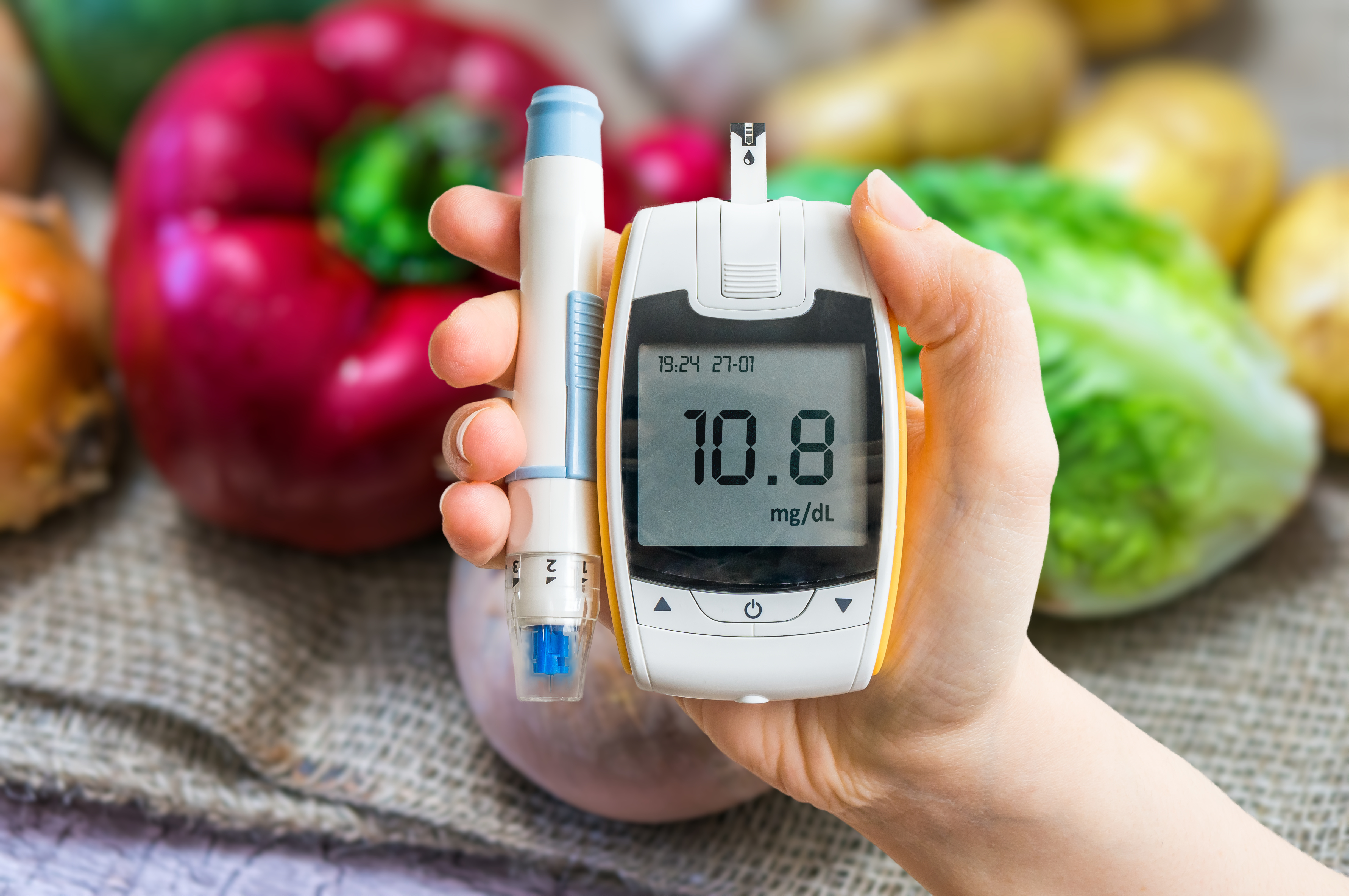
Published on December 13, 2023
Read Time: 3 Minutes
Three Things to Know
- A person develops diabetes when their pancreas stops producing insulin, or when insulin quits working correctly.
- While eliminating all sugar isn't necessary, individuals with diabetes should be mindful of the amount of sugar and carbs they eat and drink.
- Fats are fine for people with diabetes to consume, but try to avoid saturated fats (such as butter and cheese) and focus on healthier, unsaturated fats (such as olive oil and avocados).
Phelps Health Internal Medicine Physician John Armstrong, DO, answers your questions about diabetes and your diet.
What is diabetes? How are types 1 and 2 different?
Diabetes is a disease where the body cannot control sugar appropriately. The pancreas is an organ that secretes a hormone called insulin that tells your body to use or store sugar for energy. A person develops diabetes when the pancreas stops producing insulin, or when insulin quits working correctly.

The two most common types of diabetes are type 1 and type 2. Type 1 diabetes is usually a sudden disease that occurs in children where their pancreas stops producing insulin. Type 1 is often caused by the immune system attacking the pancreas.
Type 2 diabetes is usually a gradual development where the pancreas keeps making insulin, but the organs in the body stop responding to the insulin. Type 2 is typically caused by lifestyle factors and genetics.
Some of these contributing lifestyle factors include obesity, a lack of physical exercise, excess carbohydrate (carb) consumption and a poor diet.
I was recently diagnosed with diabetes. Does this mean I have to cut out all sugar?
No, you don’t need to eliminate all sugar. However, you’ll need to be aware of the amount of sugar and carbs that you’re consuming in a day.
Try to reduce your daily intake as much as possible. One of the easiest ways to reduce the amount of sugar in your diet is to eliminate sweetened drinks, like soda.
What should a healthy diet look like for someone with diabetes? What is an example of a healthy breakfast, lunch and dinner?
Start with a nonstarchy vegetable, such as broccoli, spinach, green beans or cauliflower. Add in a good source of lean protein, like chicken, turkey, beans, tofu or eggs.
Healthy carbs are an important part of your diet as well, but they should be consumed in moderation as they will have the largest impact on blood sugar. When selecting carbs, look for whole-grain foods such as brown rice, whole-wheat pasta, whole-grain bread, oatmeal, lentils, quinoa and chickpeas.
Some fruit is fine to eat, but try to avoid eating large amounts, as fruits are high in natural sugar. I suggest choosing apples, blueberries, strawberries and cantaloupe.
Limit processed or refined foods, as they tend to cause the largest increase in blood glucose (particularly avoid fruit juices and soda). Fats are fine for people with diabetes to consume, but try to avoid saturated fats (such as butter and cheese) and focus on healthier, unsaturated fats (such as olive oil and avocados).
Do I need to check my blood sugar levels before and/or after every meal?
This decision should be based on a conversation with your doctor or healthcare provider.
Most people who are newly diagnosed with diabetes typically don’t require home blood glucose checks, but it can be helpful for patients who want to know how foods impact their blood sugar.
Individuals with diabetes also can benefit from recording occasional blood sugar values throughout the month, to report to their healthcare provider.
People with more advanced forms of diabetes, who are dependent on insulin, typically require frequent blood sugar checks throughout the day in order to safely and properly administer their insulin.
More Food for Thought
Did you know? Phelps Health offers a Diabetes Self- Management Education and Support program. Contact your primary care provider for a referral. Phelps Health also offers a free monthly diabetes support group. Learn more by calling (573) 458-7314.